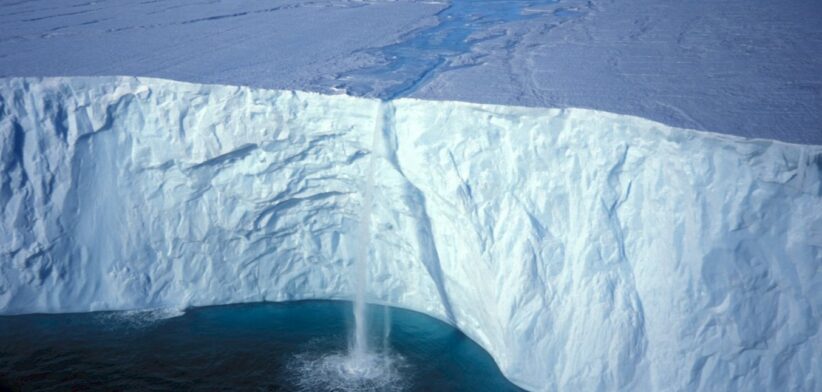Antarctic sea ice is disappearing far quicker than ice in the northern hemisphere, heightening concerns around accelerated coastal sea level rises.
A new Australian-led research review found record summer sea-ice lows in 2017, 2022 and 2023, suggesting that a “regime shift” could be underway in the region.
Australian Antarctic Division Chief Scientist Professor Nerilie Abram said the loss of sea ice was one of the rapid changes across the Antarctic environment already underway, or imminent.
Professor Abram said there was also a weakening of the ice sheet and ice shelf stability, and population declines in some marine and terrestrial species, due to habitat loss.
“It is worrying that the abrupt changes emerging in Antarctica have many interconnections, so that a change in one part of the system can trigger further impacts on Antarctica’s ice, ocean and ecosystems,” she said.
“Antarctic changes also have global consequences, including accelerating sea-level rise along our coasts, and amplifying human-caused climate warming.”
Professor Abram said their analysis examined the impact of “regime shifts”, where the structure and function of a biological or physical system transitioned from one state to another, on the functioning of Antarctica and its influence on the planet.
Study co-author and Australian Antarctic Division sea-ice scientist Petra Heil said one of the key drivers of regime shifts in Antarctica was a change in sea-ice cover, as a result of global warming.
Dr Heil said the Antarctic sea-ice cover deficit, in winter and summer, was far below what would be expected from natural variability and the rate of decline was dramatic when compared to the Arctic.
“In summer, the Antarctic sea-ice minimum has declined 1.9 times faster in 10 years than the summer sea-ice decline in the Arctic in 46 years, which is the length of the satellite record,” she said.
“The winter deficit of Antarctic sea ice over the past 10 years is of similar magnitude to the total Arctic winter sea-ice deficit over the past 46 years.”
Dr Heil said there was “overwhelming evidence” of a regime shift in Antarctic sea ice, which would have flow-on effects to other parts of the environment.
Read the full study: Emerging evidence of abrupt changes in the Antarctic environment.








